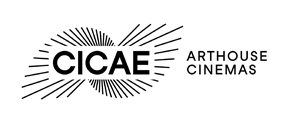|
The march for the environment
by Elisabetta Brunella

 “Why go green?” The NATO’s (National Association of Theatre Owners, representing theatrical exhibition in the United States) response to this question posed by many exhibitors is quite clear: “Because there are many simple and cost-effective ways to make your business environmentally friendly and because it’s the right thing to do.” “Why go green?” The NATO’s (National Association of Theatre Owners, representing theatrical exhibition in the United States) response to this question posed by many exhibitors is quite clear: “Because there are many simple and cost-effective ways to make your business environmentally friendly and because it’s the right thing to do.”
There are many who think the same way in Europe, too: amongst them are a number of independent theatres, often the quickest to catch on to new trands in society and consumer styles, but also several chains operating at a national or international level.
Amongst the pioneers of sustainability is Kinepolis. By means of the strategy known as “Green Star”, adopted in 2011, the Belgian-born group now operating in a total of 8 countries in Europe and North America, has implemented several measures aiming both to reduce the carbon footprint of their cinemas to a minimum and to improve the services they offer their audiences.
This is the perspective of the agreement signed in 2018 with Cinionic, a joint venture led by Barco, which made it possible - despite some delay connected to the pandemic - to install almost 300 laser projectors in 2021 which, compared to those using xenon bulbs, allow savings of between 30% and 40% in energy consumption. On the basis of this positive experience Kinepolis has set itself the objective of adding 200 more of these machines in 2022.
The use of solar panels also aims to cut electricity bills, and these have now been in use at the Belgian multiplex in Braine-L’Alleud since 2020, for example, just like the geothermal heating systems already operating in many Dutch sites.
Amongst the latter, in pride of place are Dordrecht and s’-Hertogenbosch, authentic pioneers of Kinepolis’ green policies. In fact, thanks also to the use of Optivolt technologies for energy saving and the BaOPT air-conditioning system, which allows a 40% saving on electricity, the two cinemas have obtained the Dutch GPR certification, based on five indicators, including that of environmental friendliness.
And as to audiences? Whilst the way that heating and air conditioning is generated may escape the spectator, the quality of laser projection certainly doesn’t go unnoticed. Answers to the newly emerging demands of society are also targeted by Kinepolis’ further choices, such as the theatres’ accessibility to public transport and bicycles: the latest theatre in the chain, the Dutch complex in Leidschendam opened in mid-2021, can easily be reached by tram with a stop right opposite the cinema. A change has even been made to the popcorn: the new supplier doesn’t use palm oil.
The Green Star philosophy also offers counter-proposals to the throwaway practices that dominated the last few decades: for example, the choice has been made to repair or provide new covers for damaged armchair seats instead of replacing them. In the same way, wall and floor coverings have been conceived in the form of strips, so that only certain parts need to be replaced when necessary.
To sum up, Kinepolis’ route towards sustainability certainly does consist in technological innovation, but also in practical tips recovered from the past.
 Equally interesting is the case of the Curzon circuit, with its 15 sites and 51 screens mostly located in London and in the south of the country. Equally interesting is the case of the Curzon circuit, with its 15 sites and 51 screens mostly located in London and in the south of the country.
In 2017 the British chain, already vertically integrated thanks to the purchase of the distribution company Artificial Eye, and characterised by quality programming, adopted a practical policy for reducing the theatres’ climate footprint, in terms of both direct and indirect impact.
Water and energy consumption are included in the former area, as is waste production, whilst in the latter it is a matter of consequences related to snacks, food and drinks, the degree of sustainability of communication and promotional strategies and the means of transport used by audiences to reach the theatre.
The Curzon’s strategy aims to reach certain objectives that we might define “primary”, such as for example the use of energy produced exclusively by renewable sources or cutting water and electricity consumption, obviously with the final aim of limiting CO2 emissions. But what distinguishes the circuit’s approach is the use of measuring devices that make it possible to check whether - over the years - progressively more ambitious objectives are attained.
To monitor and certify their progress in this increasing effort, Curzon has set up an alliance with Julie’s Bicycle. The latter is a non-profit organization offering services to a network of players in the fields of art and culture which, as well as the Curzon, includes, for example, the Tate Gallery, the British Film Institute and the National Theatre. Amongst the interventions foreseen are sustainability consultancy and staff training based mainly on the exchange of peer-to-peer knowledge. As a result of this initiative, Curzon has obtained “Green Certification” for 9 of its cinemas.
The certification awarded by Julie’s Bicycle foresees five levels: this makes it possible to access the system by satisfying minimum requirements, whilst at the same time committing to more advanced goals and above all measurable ones. For this purpose, Julie’s Bicycle provides various tools, including a Carbon Footprint Calculator, i.e. an interactive device that makes it possible to calculate environmental impact in terms of CO2.
The path towards making a cinema environmentally friendly can thus be travelled in gradual stages. The important thing is to make a start.
This is an extended version of the article published in the Cannes special issue of Cinema & Video Int'l, the MEDIA Salles media partner.

|





 It was on the occasion of the 2021 Cannes Film Festival, where the initiative “Cinema for the climate” was launched, that we initiated our new column “Green Cinemas”, devoted to the ecological transition of Europe’s movie theatres.
It was on the occasion of the 2021 Cannes Film Festival, where the initiative “Cinema for the climate” was launched, that we initiated our new column “Green Cinemas”, devoted to the ecological transition of Europe’s movie theatres.

 “
“ Equally interesting is the case of the Curzon circuit, with its 15 sites and 51 screens mostly located in London and in the south of the country.
Equally interesting is the case of the Curzon circuit, with its 15 sites and 51 screens mostly located in London and in the south of the country.

